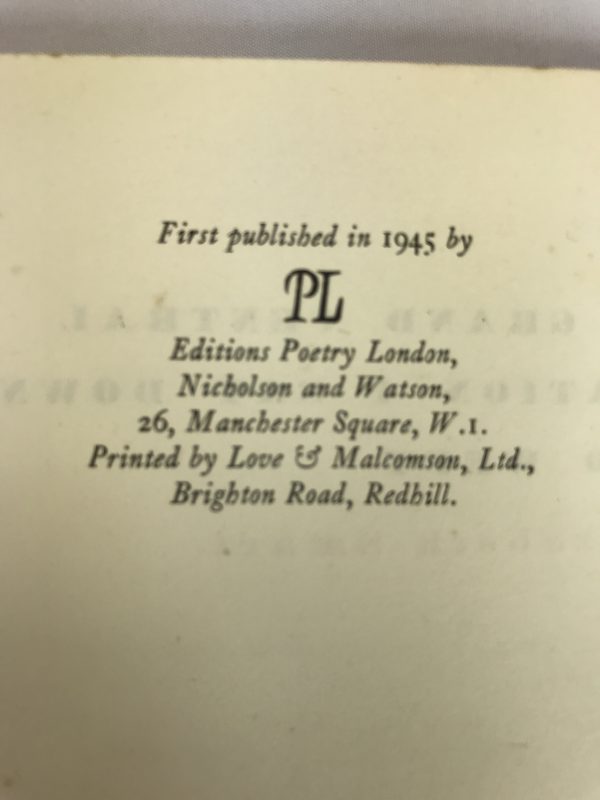

Was it for her, after all, for her whom I had never expected nor imagined, that there had been compounded such ruses of coincidence? Behind her he for whom I have waited so long, who has stalked so unbearably through my nightly dreams, fumbles with the tickets and the bags, and shuffles up to the event which too much anticipation has fingered to shreds.įor after all, it is all her. Her eyes shower me with their innocence and surprise. And, for a moment, at that gaze, I am happy to forego my future, and postpone indefinitely the miracle hanging fire. Apprehension and the summer afternoon keep drying my lips, prepared at ten-minute intervals all through the five-hour wait.īut then it is her eyes that come forward out of the vulgar disembarkers to reassure me that the bus has not disgorged disaster: her madonna eyes, soft as the newly-born, trusting as the untempted.

I am standing on a corner in Monterey, waiting for the bus to come in, and all the muscles of my will are holding my terror to face the moment I most desire. Originally published in 1945, this remarkable book is now widely identified as a classic work of poetic prose which, seven decades later, has retained all of its searing poignancy, beauty and power of impact.

They never married but Elizabeth bore George Barker four children and their relationship provided the impassioned inspiration for one of the most moving and immediate chronicles of a love affair ever written – ‘By Grand Central Station I Sat Down and Wept’. Thus began one of the most extraordinary, intense and ultimately tragic love affairs of our time. Eventually they communicated directly and, as a result of Barker’s impecunious circumstances, Elizabeth Smart flew both him and his wife from Japan, where he was teaching, to join her in the United States. One day, while browsing in a London bookshop, Elizabeth Smart chanced upon a slim volume of poetry by George Barker – and fell passionately in love with him through the printed word. Elizabeth Smart’s passionate fictional account of her intense love-affair with the poet George Barker, described by Angela Carter as ‘Like MADAME BOVARY blasted by lightning … A masterpiece’.


 0 kommentar(er)
0 kommentar(er)
